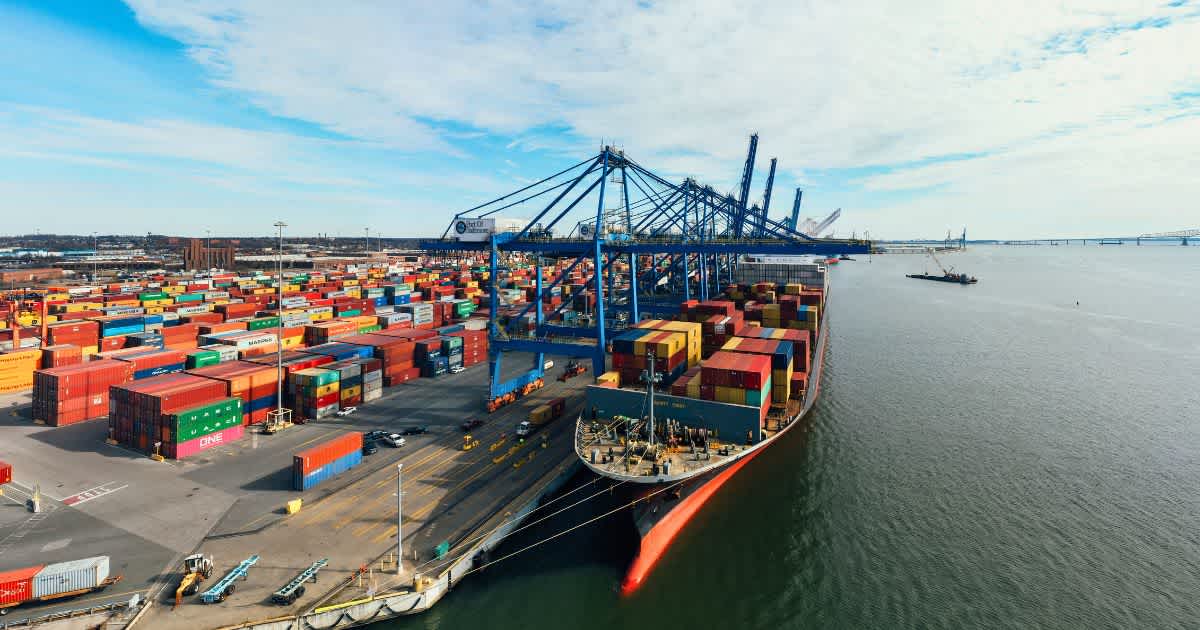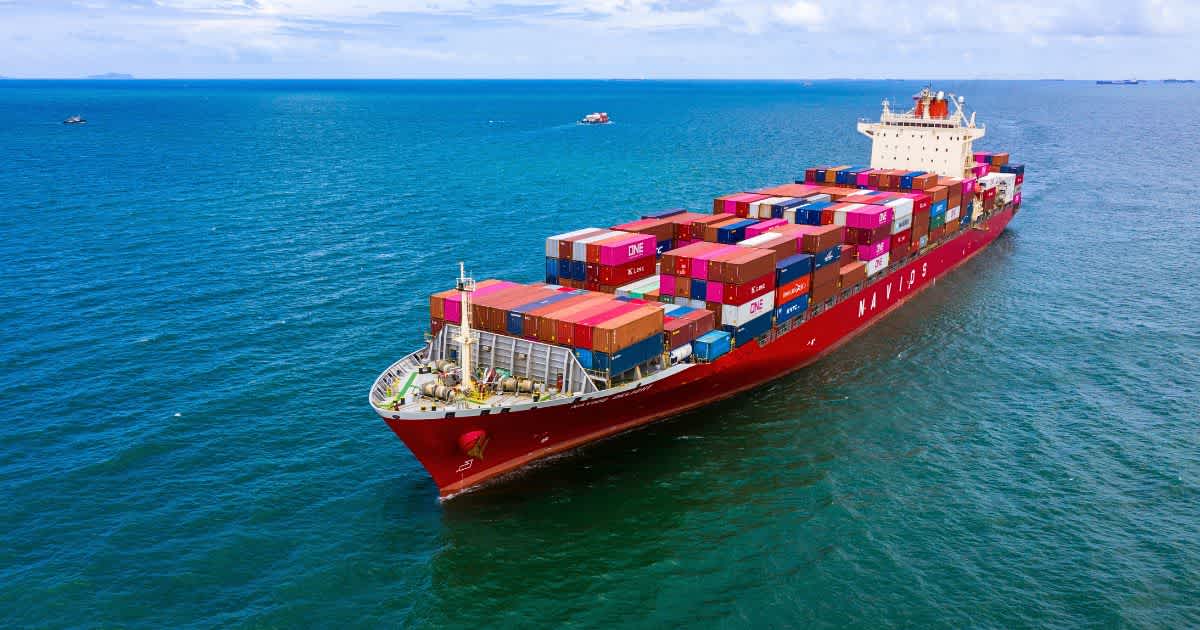New import regulations for buyers 2025
Reading Time: 4 min.

Stricter sustainability requirements, new CO₂ levies and stricter import regulations - the current import rules bring far-reaching changes for buyers in global supply chains. Find out here what companies need to do now to avoid delays or additional costs.
Why the import regulations are changing
Governments and regulators are responding to growing environmental and social challenges, while at the same time companies are under pressure to make their supply chains more transparent and sustainable.
As a result, regulations such as the Corporate Sustainability Reporting Directive (CSRD) and the ESG Supply Chain Act require companies to demonstrate that they comply with decent working conditions and environmental standards in their supply chains.
At the same time, the EU is introducing the Carbon Border Adjustment Mechanism (CBAM), a carbon border tax that particularly affects energy-intensive products. There are also new customs and import regulations that make the import of certain goods more expensive or require additional documentation.
Important regulatory changes at a glance
ESG standards and the supply chain law
With the ESG (Environmental, Social, Governance) Supply Chain Act, sustainability criteria are moving centre stage. Companies that import goods into the EU must ensure that their suppliers comply with environmental regulations, social standards and ethical business practices. This is achieved through measures such as:
Detailed documentation of the entire supply chain.
Checking the ESG standards of suppliers.
Proof of measures against environmental offences or human rights violations.
CBAM: The new CO₂ border tax
The Carbon Border Adjustment Mechanism (CBAM) is being introduced gradually and will initially affect energy-intensive industries such as steel, cement and aluminium. Companies that do not adapt to this in good time must expect rising costs and delays in customs clearance. In the long term, other product groups could also fall within the scope of application. To avoid additional duties, companies will have to submit CBAM reports in future:
Submit CBAM reports to show the CO₂ emissions of their imported goods.
Purchase certificates if their products do not meet EU climate standards.
Require their suppliers to reduce CO₂ emissions in order to avoid high levies.
CSRD: New ESG reporting obligations
The Corporate Sustainability Reporting Directive (CSRD) obliges many companies to disclose their sustainability measures. Companies that cannot prove that their goods have been produced under sustainable conditions could be at a competitive disadvantage in the long term. This is particularly important for importers:
Extended reporting on environmental and social standards in the supply chain.
Detailed evidence of the ESG compliance of products and manufacturers.
Increasing requirements for transparency and documentation.
New customs and import regulations in the EU
The changes affect goods from third countries in particular and can result in significant cost differences. Traditional customs regulations and import duties are also changing. For buyers, this means higher costs, more complex processes and more bureaucracy when importing.
Import duties for certain goods from third countries are increasing.
Customs clearance regulations are being supplemented by new sustainability requirements.
Certain goods will have to provide additional evidence.
Which sectors are particularly affected by the new import regulations
The new regulations primarily affect industries with complex global supply chains and energy-intensive production processes. The challenges vary between increased documentation requirements and direct cost increases.
In the textile industry, the requirements for ESG compliance and proof of origin are increasing in order to ensure fair working conditions and environmentally friendly production.
The electronics industry must provide detailed information on CO₂ emissions in the supply chain, as many components are subject to CBAM obligations.
The mechanical engineering sector is also faced with higher customs duties and stricter environmental regulations, particularly for metal components.
In the chemical and plastics industries, ESG reporting and the REACH regulation are tightening the requirements for ingredients and sustainability certificates.
4 things that buyers should do now
The new import regulations are complex - but those who prepare now can avoid legal risks and optimise costs.
1. improve transparency in the supply chain
Those who cannot prove that all suppliers comply with the ESG criteria not only risk sanctions, but also import delays and reputational damage.
A first step is therefore to systematically check all suppliers for ESG compliance - for example through certifications, self-assessments or external audits. At the same time, companies should digitally document their value chain in order to recognise risks at an early stage. Internal control mechanisms - such as regular supplier audits and ESG guidelines in purchasing - can help to consistently implement the new standards.
2. integrate ESG reporting into the purchasing strategy
The Corporate Sustainability Reporting Directive (CSRD) and other ESG regulations require detailed evidence of environmental and social standards in the supply chain. Those who cannot provide this risk losing business relationships or market access.
The key to compliance lies in coordinating with suppliers at an early stage to ensure that ESG data is recorded and provided in full. At the same time, companies should adapt their purchasing processes so that sustainability criteria are taken into account from the outset.
3. optimise your customs strategy
Increasing import duties and new regulatory requirements such as CBAM (Carbon Border Adjustment Mechanism) require a more precise customs strategy. Those who check at an early stage which import regulations and CBAM obligations apply to their products can avoid unnecessary delays and high duties.
The use of customs advisors or digital solutions for customs clearance is recommended in order to fulfil the complex requirements. Automated systems can make processes more efficient and reduce compliance risks. A forward-looking customs strategy not only saves costs, but also ensures that goods reach the market without delay.
4. use modern technologies
The new ESG and customs regulations require more precise management of supply chain and import data. This is where automated platforms come into play, facilitating the collection of ESG data, optimising CBAM reporting and reducing the administrative burden.
Automation also ensures efficiency in customs clearance: digital customs systems check import regulations, calculate duties and speed up processes. This avoids delays and reduces costs through optimised customs tariff numbers or free trade agreements.
Blockchain technology can also improve the traceability of supply chains: Tamper-proof data records prove origin, ESG standards and CO₂ emissions, which is a big plus for compliance, transparency and trust.
New import regulations: It helps to act in good time
The new import regulations are fundamentally changing international trade: anyone importing goods into the EU must be prepared for stricter ESG requirements, new reporting obligations and higher import duties. If you want to reduce your costs and secure a competitive advantage, you need to adapt your purchasing processes in good time.
Act now - optimise your supply chains, reduce costs and remain competitive. We will support you.
Newsletter Registration
Sign up now for our free Line Up newsletter and stay up to date.





